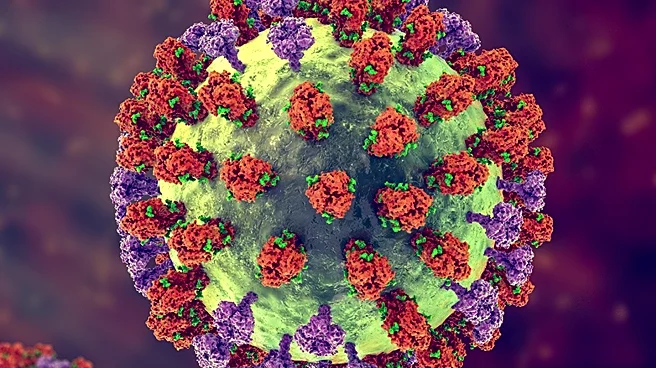What is the story about?
What's Happening?
A study led by Albert Einstein College of Medicine has confirmed the effectiveness of the HPV vaccine in preventing infections and promoting herd immunity. The research, conducted over 17 years, shows significant reductions in HPV infections among vaccinated individuals and evidence of herd immunity protecting unvaccinated women. The study highlights the potential of the HPV vaccine to prevent cervical cancer and other HPV-related diseases.
Why It's Important?
The findings underscore the importance of widespread HPV vaccination in reducing the incidence of cervical cancer and other HPV-related diseases. Herd immunity benefits extend protection to unvaccinated individuals, highlighting the vaccine's role in public health. Increasing vaccination rates could lead to significant reductions in cancer cases and improve health outcomes globally.
What's Next?
Efforts to promote HPV vaccination will continue, focusing on increasing public awareness and addressing vaccine hesitancy. Health officials will work to expand access to the vaccine, particularly in regions with low coverage rates. Collaboration with healthcare providers and community organizations will be essential in ensuring comprehensive public health protection.
Beyond the Headlines
The study's findings highlight broader challenges in vaccine uptake and public health communication. Addressing these issues requires transparent communication, community engagement, and efforts to counter misinformation. The situation also underscores the importance of continued investment in vaccine research and development to combat infectious diseases.
















